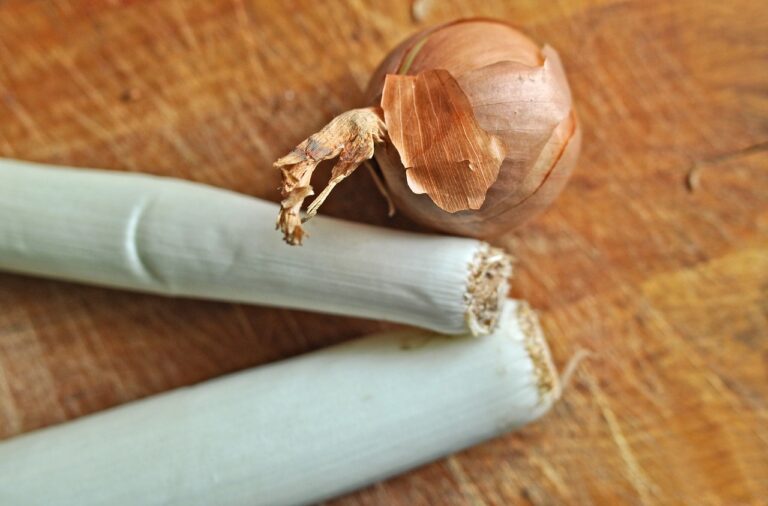Biotechnology Approaches for Enhancing Bioenergy Production: 11xplay online id, India24bet login, Skyinplay
11xplay online id, india24bet login, skyinplay: Biotechnology Approaches for Enhancing Bioenergy Production
In recent years, there has been a growing interest in finding sustainable sources of energy to reduce our reliance on fossil fuels and decrease our carbon footprint. Bioenergy, which is produced from organic materials like crops, agricultural residues, and algae, has emerged as a promising alternative. Biotechnology plays a crucial role in enhancing bioenergy production by improving the efficiency and yield of biofuel crops, optimizing the conversion of biomass into biofuels, and developing new bioenergy sources.
1. Genetic Engineering of Biofuel Crops
One of the most promising biotechnology approaches in bioenergy production is genetic engineering of biofuel crops. Scientists are using techniques like gene editing to modify the metabolic pathways of plants, enhancing their ability to produce high amounts of biomass and biofuels. For example, researchers have engineered crops like switchgrass and sugarcane to increase their cellulose content, making them more suitable for biofuel production.
2. Microbial Fuel Cells
Microbial fuel cells are another biotechnology approach that shows promise in enhancing bioenergy production. These devices use microbes to convert organic matter into electricity, offering a sustainable way to generate power. Researchers are exploring ways to optimize microbial fuel cells by developing new strains of bacteria that can efficiently break down biomass and generate more electricity.
3. Algae Biofuels
Algae are a versatile bioenergy source that can be grown in a variety of conditions, making them a promising candidate for biofuel production. Biotechnologists are working on genetically engineering algae to increase their lipid content, which can be converted into biodiesel. By optimizing the growth conditions and metabolic pathways of algae, scientists aim to boost biofuel production and make it a cost-effective alternative to fossil fuels.
4. Enzyme Engineering
Enzymes play a crucial role in breaking down biomass into biofuels through processes like fermentation and anaerobic digestion. Biotechnologists are using enzyme engineering techniques to develop more efficient enzymes that can speed up the conversion of biomass into biofuels. By optimizing the activity and stability of these enzymes, researchers aim to increase the yield and quality of biofuels.
5. Waste-to-Energy Conversion
Biotechnology approaches are also being used to convert waste materials like agricultural residues, food waste, and municipal solid waste into bioenergy. Through processes like anaerobic digestion and gasification, biotechnologists can turn organic waste into biogas, biofuels, and electricity. By optimizing the microbial communities and operating conditions in these processes, researchers can enhance the efficiency of waste-to-energy conversion and reduce environmental pollution.
6. Synthetic Biology
Synthetic biology is a cutting-edge field that involves designing and constructing new biological parts, devices, and systems for bioenergy production. By engineering synthetic organisms with specific metabolic pathways for biofuel production, scientists can create more efficient and sustainable bioenergy sources. Synthetic biology holds great potential for revolutionizing bioenergy production and accelerating the transition towards a greener energy future.
In conclusion, biotechnology approaches are instrumental in enhancing bioenergy production by improving the efficiency, yield, and sustainability of biofuels. From genetic engineering of biofuel crops to microbial fuel cells and algae biofuels, biotechnologists are employing a wide range of techniques to develop innovative solutions for our energy needs. With ongoing research and advancements in biotechnology, we can expect to see more efficient and cost-effective bioenergy technologies in the near future.
FAQs
Q: What are the advantages of using biotechnology in bioenergy production?
A: Biotechnology offers numerous advantages in bioenergy production, including increased yield and efficiency of biofuels, optimization of biomass conversion processes, and development of sustainable bioenergy sources.
Q: How can biotechnology help in reducing our reliance on fossil fuels?
A: By enhancing bioenergy production through genetic engineering, enzyme optimization, and waste-to-energy conversion, biotechnology can provide sustainable alternatives to fossil fuels and reduce our carbon footprint.
Q: What are some challenges in implementing biotechnology approaches for bioenergy production?
A: Some challenges include regulatory hurdles, public perception of genetically modified organisms, and scalability of biotechnological processes. However, ongoing research and collaboration among scientists can help overcome these challenges and drive the adoption of biotechnology in bioenergy production.







